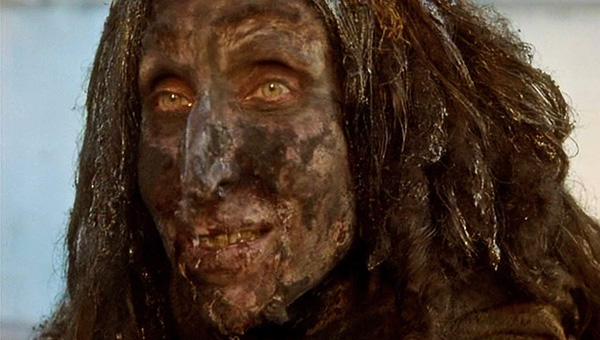[Spoiler warnings]
I think Mulholland Drive is a movie about how Hollywood seduces and destroys people.
Betty (Naomi Watts character) is actually Diane Selwyn—Betty is a representation of her hokey internal self-image within a fantasy world that constitutes the first two-thirds of the movie. So are the two seniors she arrives in LA with, who represent her naive dreams of fame and fortune and reappear to torment her just before she shoots herself within this fantasy world. They smile maniacially in the taxi as though totally out of touch with reality, as Diane apparently increasingly is. Coco the landlord is actually Adam the director’s mother, who is a benevolent figure in the fantasy world and accordingly in reality the only one who talks to or is kind to Diane at the dinner towards the end, once the fantasy ends. There, in the plastic cutthroat world of real-world Hollywood, Camilla (Rita in Diane’s fantasy) abandons and betrays Diane with the fantasy Camilla Rhodes (Melissa George), real-life Camilla’s real-life (other?) side fling, and Adam announces their marriage, to Diane’s obvious distress.
As I read it, the entire mobster/cowboy subplot is Diane fantasy content that accounts for why Diane struggles in her career; Adam falls in love with her at first sight but is unable to cast her because he is subject to mob standover tactics—not because she is betrayed/upstaged by (fantasy Rita, real-life) Camilla (again represented in Diane fantasy-land by Melissa George as a ring-in who gets the gig due to connections rather than talent). Back in real life, Camilla and Adam both use, then abandon and discard Diane, who lacks comparable mercenary qualities necessary to make it in Hollywood.
The whole multiple shooting subplot over the black book is another fantasy element that introduces the goon that Diane rage-hires with the last of her aunt’s money to kill Camilla; Diane meets this guy as he interacts with another woman who appears to be more overtly a casualty of Los Angeles. The blue key left on her table is the signal that the job has been done. A blue key appears in Rita’s bag during the early parts of the movie as the device that ends up unlocking the Betty fantasy world; ‘Betty’ disappears as ‘Rita’ puts on the blonde wig, which suggested to me Diane’s codependence on Camilla and so her inability to move on from the humiliation at Adam and Camilla’s dinner party; Diane gets nasty during sex with Camilla when she says they shouldn’t see each other anymore which reinforces this impression. Maybe she has a short-lived and ultimately unsuccessful fling with the neighbour who looks and dresses like Rita/Camilla.
The cash in Rita’s purse is Diane’s money she gets from her dead aunt that enables her to travel to Hollywood in the first place; when condependent-Diane-represented-by-Rita-wearing-the-blonde wig puts the blue key into the blue box she finds, the Betty fantasy world ends and Diane returns to reality. As the detectives investigating the murder of Camilla at the hands of Diane’s goon knock on her door as one of her known associates and someone with motive to hire a contract killer, Diane goes insane, is chased by her senior citizen demons into the bedroom where she shoots herself in one of the most horrorific scenes ever put onto film.
The images of the homeless mud-covered figure who lives behind the restaurant as seen at the start of the movie suggests an image of Diane’s internal state; this figure is seen holding the blue box unlocked by the blue key from the contract goon who killed Camilla and the senior citizen symbols of Diane’s hokey dreams of fame and fortune in Hollywood. Right at the end, the latter run around like crazy ants to symbolise how far astray she has gone in the end; these images are intercut with Diane standing in the spotlight (back in her hometown presumably) and getting dreams of making it in Hollywood—though in this instance she couldn’t have come more unstuck (would not surprise me if it was Naomi Watts under all the mud).
So a movie about how Hollywood seduces and destroys people as I say. Good commentary on majestic late capitalism in general.
Discover more from Ben Debney
Subscribe to get the latest posts sent to your email.

